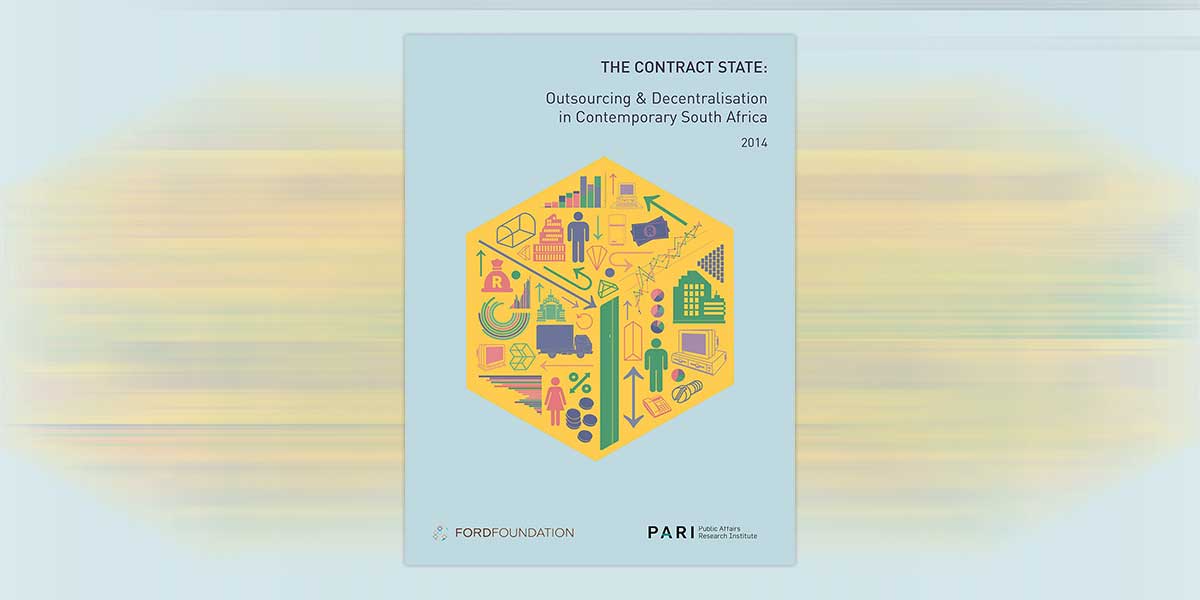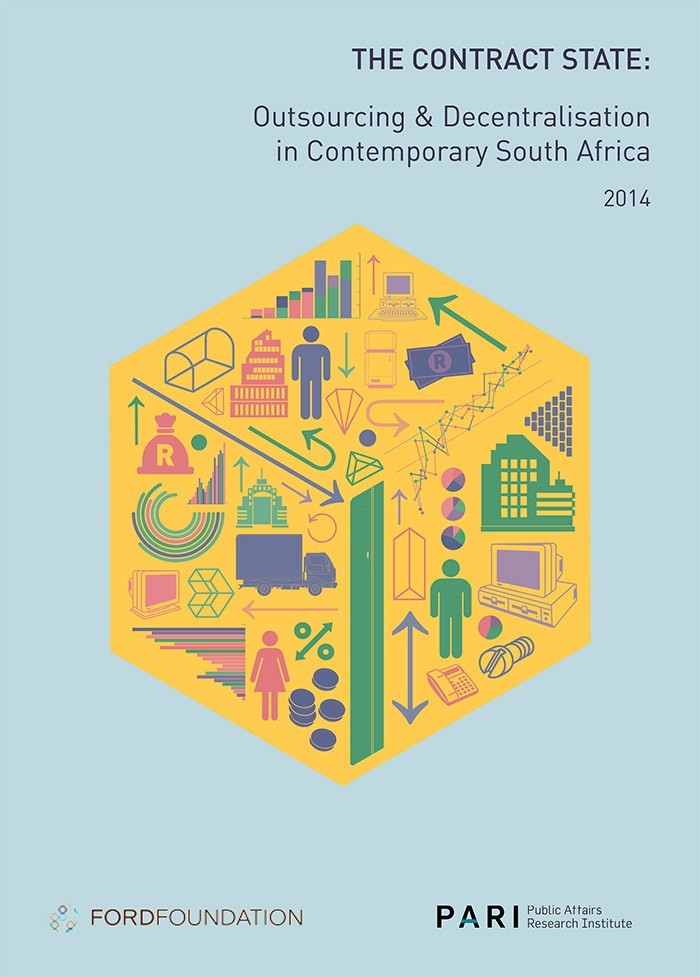10 Features of South Africa’s Contract State
PARI’s 2014 report remains relevant in the light of whistleblowers’ revelations at the Zondo Commision of Enquiry into state capture.
The report states that was called ‘state capacity’ is now predicated on the ability of the state to tap into and manage, through contractual relations, private-sector capacities. Corruption and clientelism are developing largely around the weaknesses of this contract state. These 10 features are defined by ‘The Contract State: Outsourcing and Decentralising in Contemporary South Africa’.
- Outsourcing and decentralization have been central to the post-apartheid state’s agenda. A striking feature of the post-apartheid state has been the contracting-out of government services to third-party providers. In this regard, two imperatives – the desire to modernise the state as well as to use government agencies as a catalyst for black economic empowerment – came together behind a common agenda for public sector reform.
- The decentralization agenda affects procurement acutely. In 2012/13, the budget of national, provincial and local government combined was R 876.6 billion. National Treasury statistics show that R 372.9 billion or 42 percent of this was allocated to procurement, or the supply chain management system. Between 2009 and 2013, spending on procurement grew by an average of 10 percent annually.
- Service delivery is placed in the hands of private companies. Service delivery in South Africa is decreasingly performed by government administrations and increasingly performed by private companies that tender for this role.
- Supply chain management is the largest function of government departments. The role of public servants has changed from that of administration to that of managing contracts. Public servants are effectively managing service-delivery contracts with private firms, other departments and parastatals. The quality of service delivery often depends on how well these contracts are negotiated and enforced.
- Procurement planning is weak. Strategic planning documents themselves are often of poor quality, and frequently not evidence-based. In turn, procurement planning is de-linked from broader strategic plans. The report cites interviews suggesting that the ‘supply chain is really pulled in at the tail end’ of the planning process. In this case timeframes built into the regulated process are difficult to follow, ‘it is too late and most of the damage is already done’.
- Poor specifications mean that tenders cannot be compared objectively. There is often no clear basis for comparing one tender to another. Specific issues related to the lack of clear definitions of technical terms provided, and limited detail provided to bidders for specifications around important technical issues. Private providers often have limited knowledge regarding the resources, capacities and needs of public institutions. In this context they sometimes suggest more expensive options than are needed or even manageable.
- Competitive tenders and exceptional procurements create an opportunity for corruption. Quotation-based procurement processes provide opportunities for government officials to exercise high levels of discretion regarding who gets government contracts, and corrupt choices can fit quite easily within regulations. Furthermore, all procurement procedures have exception clauses to ensure smooth working in emergency or urgent situations. However, exceptions are often invoked inappropriately, and sometimes not when they are needed.
- Supplier-performance monitoring is unregulated. The ease with which companies can be established, and the practice of farming directorships out to family and friends, means that it is difficult to restrict underperforming suppliers. Procedures for checking payments against receipts and contracts are not always followed, leading to the inflation of invoices, double payments and so on. Communication between end-users and suppliers is often deficient and acrimonious, meaning there is little or no follow up on service delivery issues.
- Procurement is highly fragmented and decentralized. In some cases, the very outsourcing function is itself outsourced. There are literally tens of thousands of sites and locations where tenders are issued and awarded and where contracts are managed for the performance of all manner of services and functions. In the Eastern Cape Department of Education, for example, the procurement of certain goods for schools takes place from one of more than 4 000 places.
- Politicisation of public administration compromises governance. Politicians retain substantial lawful discretion over the appointment, promotion and, in extreme cases dismissal, of public servants. This can enable politicians to go beyond formal and impartial rules in imposing their will upon public administrations. Politicians with power over appointments and promotion can place close associates into key positions and collude with them in non-compliant behaviour.



